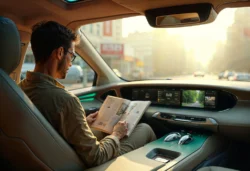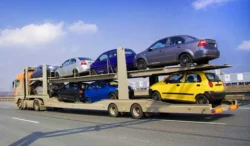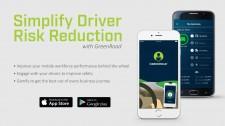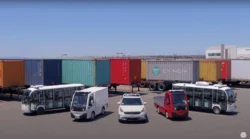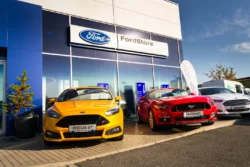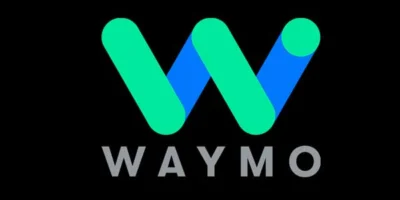
Aug 22, 2025 (UTC) - In a groundbreaking development for autonomous vehicle (AV) technology, Waymo, Alphabet’s self-driving car subsidiary, has been granted the first-ever permit by New York City to test its autonomous vehicles on the streets of Manhattan and Downtown Brooklyn. Announced by Mayor Eric Adams and the New York City Department of Transportation (NYC DOT), this approval marks a significant step toward integrating AVs into one of the world’s most complex urban environments. The permit allows Waymo to deploy up to eight Jaguar I-Pace SUVs for testing through late September 2025, with trained safety operators behind the wheel at all times, as mandated by New York state law.
Details of the Testing Program
The testing initiative, the first of its kind in New York City, restricts Waymo’s operations to specific areas of Manhattan and Downtown Brooklyn. Each vehicle must have a human safety specialist with at least one hand on the wheel, ensuring compliance with state regulations that prohibit fully driverless operations. Waymo cannot offer passenger services during this phase, as that would require a separate license from the city’s Taxi and Limousine Commission (TLC). The company is required to coordinate closely with the NYC DOT, submit regular data reports, and adhere to strict cybersecurity and safety protocols.
Waymo plans to begin testing “immediately,” leveraging its sixth-generation hardware equipped with advanced lidar, radar, and camera systems to navigate the city’s dense pedestrian flows, erratic traffic, and unpredictable construction zones. The permit is part of a new AV safety regime launched by Mayor Adams in 2024, which mandates coordination with first responders and submission of detailed safety and testing plans. Waymo has also secured necessary permits from the New York State Department of Motor Vehicles.
Context and Previous Efforts
This is not Waymo’s first foray into New York. In 2021, the company deployed Chrysler Pacifica minivans to manually map Manhattan and parts of New Jersey, gathering data to refine its autonomous driving system. Earlier in 2025, Waymo conducted a “road trip” to Buffalo to test its vehicles in snowy conditions, preparing for the Northeast’s challenging weather. In June 2025, Waymo applied for this testing permit, engaging with lawmakers and local organizations like Mothers Against Drunk Driving to build support.
The current testing phase is a precursor to Waymo’s long-term goal of launching a commercial robotaxi service in New York, though significant regulatory hurdles remain. New York’s laws currently prohibit fully autonomous vehicles without a human driver, and TLC rules ban self-driving cars from offering for-hire services. Waymo is actively advocating for legislative changes to enable driverless operations, a move that could position it ahead of competitors like Tesla and Amazon-backed Zoox, which are also eyeing the New York market.
Industry and Community Reactions
The announcement has sparked varied responses. Mayor Adams emphasized his administration’s tech-friendly stance, stating, “We’re always looking for innovative ways to safely move our city forward.” NYC DOT Commissioner Ydanis Rodriguez highlighted the comprehensive safety guidelines designed to protect pedestrians, cyclists, and other road users in the city’s bustling streets. Waymo’s head of U.S. state and local public policy, Annabel Chang, expressed pride in securing the first permit, noting it as a step toward bringing “life-saving technology” to New Yorkers.
However, concerns have emerged from labor groups and residents. The Transport Workers Union warned that Waymo’s AVs could disrupt emergency responders and threaten jobs for taxi and rideshare drivers, a sector already strained by platforms like Uber and Lyft. Posts on X reflected mixed sentiment, with some users excited about the “ultimate stress test” for AV technology in New York’s chaotic traffic, while others humorously questioned how to interact with robotaxis, referencing the iconic line, “I’m walking here!”
Competitive Landscape and Broader Implications
Waymo’s entry into New York aligns with its aggressive U.S. expansion, including commercial robotaxi services in Phoenix, San Francisco, Los Angeles, Austin, and Atlanta, where it has logged over 10 million rides. The company also plans to launch in Miami, Washington, D.C., and Philadelphia, signaling a strong push into the Northeast. Unlike competitor Cruise, which faced setbacks after a 2023 incident in San Francisco, Waymo’s safety record—reporting only three crashes with injuries over 7.1 million miles—bolsters its case for urban deployment.
The permit could influence federal AV regulations, as the National Highway Traffic Safety Administration monitors urban testing. Success in New York’s challenging environment—marked by jaywalkers, delivery bikes, and gridlock—could accelerate approvals for rivals like Cruise or Zoox. However, ethical questions persist, such as how AVs will handle split-second decisions in complex scenarios.
Looking Ahead
Waymo’s testing phase runs through late September 2025, with the option to apply for an extension. The data collected will refine its autonomous driving algorithms, potentially paving the way for a future robotaxi service. As New York navigates this technological shift, the balance between innovation, safety, and economic impacts on traditional drivers remains a critical consideration. This milestone underscores Waymo’s leadership in the AV industry and sets the stage for a transformative era in urban mobility.
